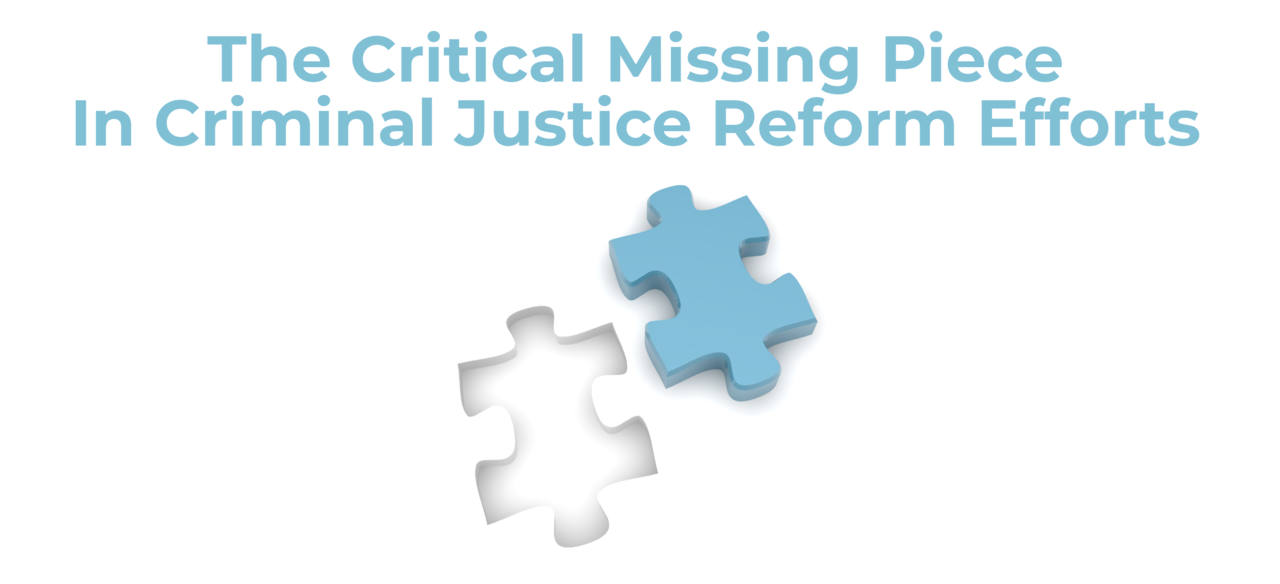
The critical missing piece in criminal justice reform efforts
Correctional officers (COs) are one of our greatest assets in the prison system. Despite that being the case, very little attention has been paid to their safety…specifically their psychosocial safety and mental health safety. A study done by Spinaris, C. G., Denhof, M. D., & Kellaway (2012) reported that 27 percent of officers reported symptoms of post-traumatic stress disorder (Posttraumatic stress disorder in United States correctional professionals: prevalence and impact on health and functioning). A study done by Stack, S. J., & Tsoudis, O. (Suicide risk among correctional officers: analysis. Archives of Suicide Research) reported that “suicide rate for COs is 39 percent higher than that of the general working-age population.” That study was done in 1997 so results may or may not be the same at this time.
Criminal justice reform in the United States refers to reform aimed at fixing perceived errors in the criminal justice system…to date these “errors” have focused on policies and practices that affect the people that have offended or are suspected of offending. I can’t help but wonder what “errors” we are making when it comes to the health and wellness of our correctional officers. Does it not make sense to also focus our reform efforts on policies and practices that negatively affect correctional officers? Particularly given the impact that these two populations (offenders and correctional officers) have on each other?
The research is somewhat limited on the topic of correctional officer and correctional staff wellness. It would seem that correctional officers and their health and safety has not historically been an area of focus. Given the important role that officers play in maintaining order in correctional facilities, their wellness is a crucial component of the criminal justice system and public safety as a whole. Other areas of the criminal justice system (risk assessments, body worn cameras, etc.) have been subject to incredible reform, yet this critical area has largely been neglected.
Why officer wellness matters
Research has shown that correctional officers experience high stress levels, burnout, and a variety of other mental health-related consequences related to their work. These conditions result in absenteeism and high-turnover rates, which can often result in under-staffed work environments. Under-staffed work environments puts both officers and offenders in grave danger, resulting in increased stress and a vicious cycle of mental health issues, staff burnout, high staff turnover, and absenteeism. Organizations have traditionally tried to hire their way out of this cycle, but have been unsuccessful.
What can we do about it?
Some recommendations were made here by the National Institute of Justice to improve the overall safety of officers in the prison system which they hope will in turn improve the over-all well-being of correctional officers.
Interestingly, the researchers in this paper found that “various policies and programs have been introduced across prison facilities with the specific purpose of enhancing officer well-being. However, few of these programs have been subjected to rigorous scientific evaluation, thus limiting the understanding of their effectiveness.”
It would seem that the industry has little to no evidence based knowledge of what we should do about it.
Starting an international conversation about officer wellness
Generally I like to identify an organization or a country that has done some interesting work in a particular area that other organizations from around the world are struggling with. In this case I will mention the Canadian Institute for Public Safety Research and Treatment (CIPSRT). CIPSRT (https://www.cipsrt-icrtsp.ca/en/about/about-us/) provides a variety of resources that can help correctional officers cope with mental health issues. A cornerstone of CIPSRT is to increase the resiliency of Public Safety Personnel and reduce stigma, as well as build the next generation of expertise to support Public Safety Personnel and their families and educate executives to lead a trauma-informed workplace. It is a national network that responds to the urgent needs of the Tri-Services and Public Safety sector to provide the best practical scientific evidence that will lead to real and imminent positive impact on the mental health of all public safety personnel.
Although I look forward to following their work, I can’t help but wonder what else is out there to help promote officer wellness? Do you believe that officer wellness should be a key component in our criminal justice reform efforts? Is anyone screening their correctional staff for mental health or wellness related issues? Has anyone seen any evidence based programming designed for correctional officers? If one tool could exist for officer wellness that would have a significant impact…what would it be?
As always, it doesn’t matter where a solution came from…only that we all learn from it. We are all in this together.
Tammy Holwell is the Manager of the Public Safety Division of MHS and the Global Institute for Forensic Research. MHS is a training, research, science and data analytics company that has published many of the gold standard science, software, and assessments in the criminal justice industry. Tammy has worked with Public Safety organizations from around the world to leverage research and data analytics to increase public safety.

Yes, I do think wellness at work is an essential part of personal growth and stability. As well as a very positive aspect of an employer to offer.
Assistant Director, Educational Services at StataCorp
5yGreat article! I hadn't given much thought to the other side of the table, but you're absolutely right- officer wellness is integral to public safety. Thanks for the thought-provoking read!